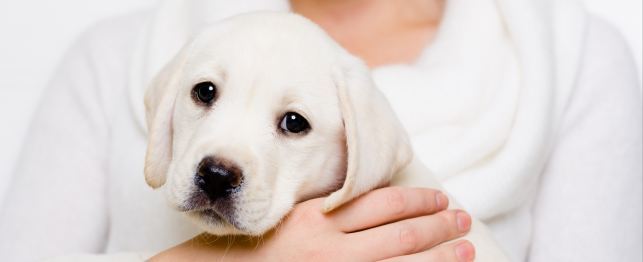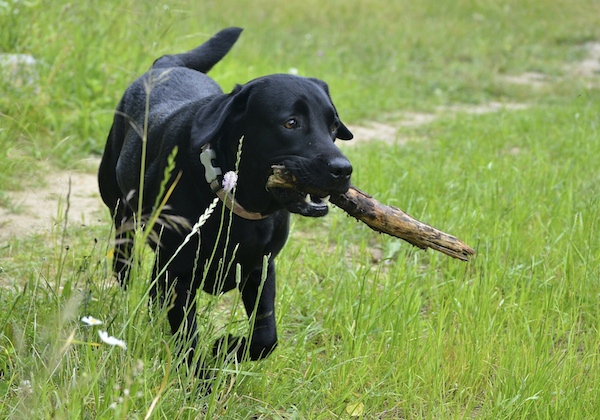Ten Things You Should Know About Your Puppy

Dogs
It's always a happy moment for parents and children when they first acquire a new puppy. Most people receive a few elementary instructions on how to proceed from the breeder and all except the most foolhardy will have made preparations at home for the youngster's arrival at their home.
Food bowls and dog beds, collars and leads, toys, and an ample supply of puppy rations, should await the pup on homecoming. With luck, the breeder will also point out the necessity of vaccination and deworming, recommending a timely veterinary visit so that health matters are in hand.
What else then do new puppy owners need to know during the early weeks and months of ownership if they are to give their pup the best chance of becoming a well-balanced, well-behaved, and loving family dog? Below is a list of 10 important things that new puppy owners should know or realize if they are to stand the best chance of success:
Appropriate psychological support is required. It is extremely important that young puppies, of say 8 to 12 weeks of age, do not suffer any psychological trauma. They should be nurtured at this stage and allowed to develop confidence, which will remain with them as a positive aspect of their personalities for the remainder of their lives. In this respect, there should be no physical punishment, no yelling, no hitting, and no intimidating of the pup for apparent misdeeds. Negative punishment, i.e. withdrawal of a valued resource [such as your attention] can be employed later as a corrective measure to address any emerging problem behaviors. It is particularly important to 'be there' for puppies at times of need and not to leave them alone for long hours. This is especially important at night when the new pup cries for attention. While some folk say, "Leave the pup alone or you'll make a rod for your own back," or "Just let them cry themselves to sleep," this is totally the wrong approach. Rather, the pup should be allowed to sleep in the owner's bedroom and should be attended to and spoken to gently if it shows signs of distress. It is not necessary to allow the pup to come into the owner's bed, simply for it to know that someone is there for it and is attentive.
Socialization is imperative. While a lot of people pay lip service to the word "socialization" as it relates to puppy training, very few people realize that this should be a carefully thought out, active and ongoing process if it is to achieve the requisite goals. The concept of "puppy parties" is a useful one which entails the introduction of young pups to an assortment of benign individuals of different ages and genders, wearing different types of apparel, whilst arranging for the circumstances to be pleasurable for the pup. This ensures that the pup comes to regard all people, familiar and unfamiliar, as potential friends and benefactors and staves off future fearfulness and even fear aggression. Socialization is an extremely important measure and one to understand and practice. Desensitization to various things that the pup is likely to encounter in its present and future environment is also important. Vacuum cleaners, ironing boards, various sounds, sights, and even smells can be introduced in a graded way for the puppy's controlled acceptance.


 Shopping List for Your Puppy
Shopping List for Your Puppy
Shopping List for Your Puppy
Shopping List for Your Puppy
 Shedding Light on Shedding
Dogs Shed for a Variety of Reasons
Shedding Light on Shedding
Dogs Shed for a Variety of Reasons
 Diabetes in Dogs: Symptoms, Causes, Diagnosis, & Treatment
Diabetes is a chronic disease that
Diabetes in Dogs: Symptoms, Causes, Diagnosis, & Treatment
Diabetes is a chronic disease that
 What Your 12-month-old Puppy Needs
What Your 12-month-old Puppy Needs
What Your 12-month-old Puppy Needs
What Your 12-month-old Puppy Needs
 Bring A Puppy Home - What You Should Do for the First 24 Hours
Bring A Puppy Home - What You Should Do for t
Bring A Puppy Home - What You Should Do for the First 24 Hours
Bring A Puppy Home - What You Should Do for t